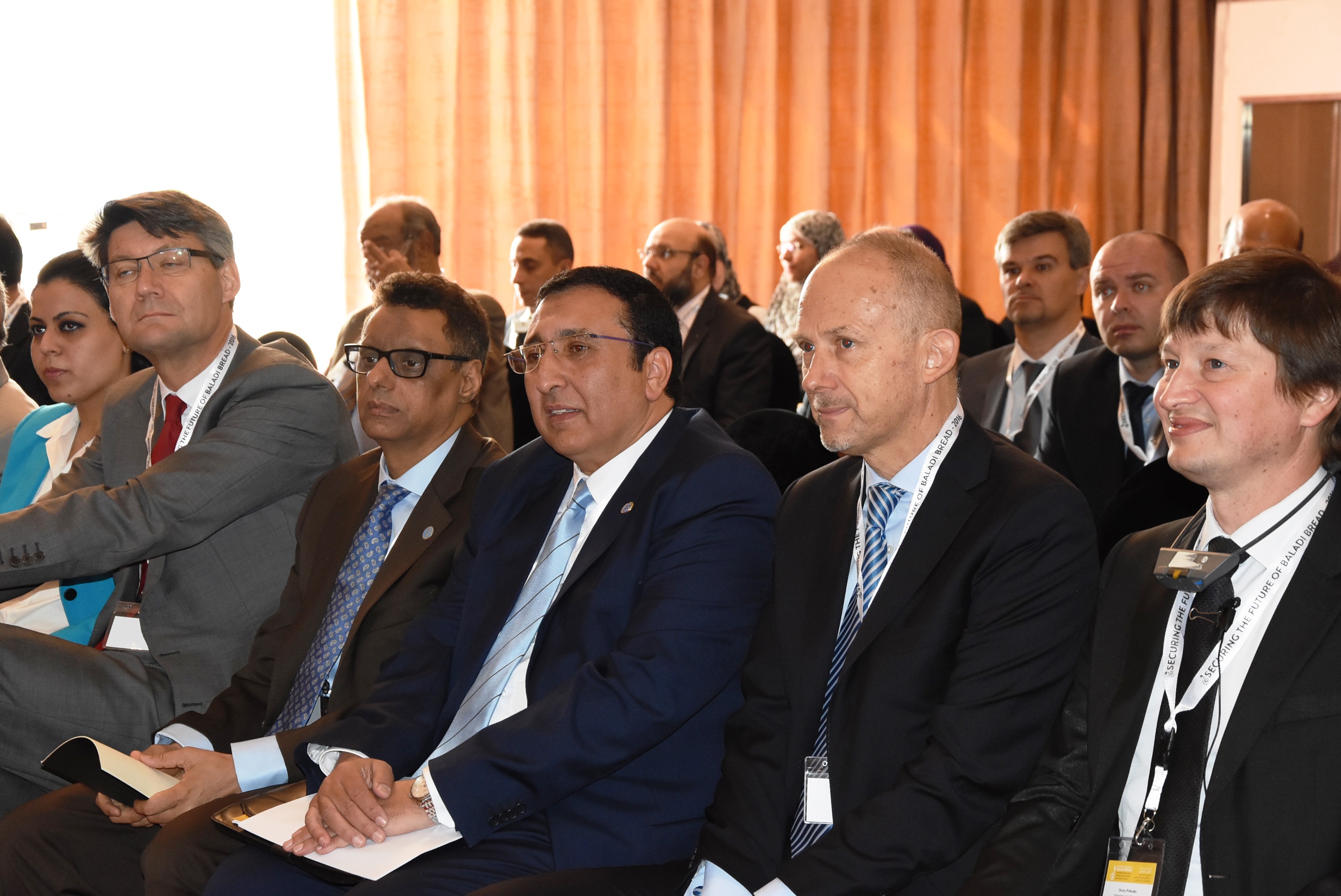FAO and EBRD host public-private dialogue on Egypt’s grain sector

Private sector engagement key to ensure efficiency of grain supplies
A high-level conference in Cairo on Wednesday sought to strengthen the role of the private sector in Egypt’s crucial grain sector, with the aim of improving efficiency and reducing waste and damage.
The conference was hosted by the Food and Agriculture Organization of the United Nations (FAO) and the European Bank for Reconstruction and Development (EBRD) and brought together representatives from both the private and public sectors.
The one-day conference in Cairo was entitled “Securing the future of Baladi bread” – a reference to the typical Egyptian flatbread that is a staple for Egypt’s fast-growing population. The country is Africa’s largest grain producer and the world’s biggest importer of foreign-grown grains.
Participants addressed the issue of how Egyptian public-private cooperation could help ensure food security in Egypt in the future and discussed the urgency of investments in the modernisation of Egyptian grain industry infrastructure.
Egypt may be losing 10 to 20 per centof its overall wheat supplies due to inadequate infrastructure along the supply chain.
“Developing key logistical and storage infrastructure can be a turning point in improving import efficiency in Egypt’s grain sector,” said Gilles Mettetal, EBRD Director for Agribusiness. “Together the government and the private sector can achieve this if there is strong willingness to move towards a more liberalised market to boost private investment and competitiveness.”
The industry is also hampered by complex tender procedures and inspection requirements that increase the cost of Egyptian grain imports.
“Streamlining tender procedures, greater transparency and consultation in the application of phytosanitary measures in line with international practice will greatly contribute to the efficiency of the grain supply chain and could eventually lead to important savings for Egyptian consumers,” said Dmitry Prikhodko, Economist at FAO’s Investment Centre.
It is also important to improve grain market transparency, which would encourage investment and reduce commercial risks and the cost of financing.
FAO Assistant Director-General and Regional Representative for the Near East and North Africa, Mr Abdessalam Ould Ahmed, said that "Egypt is aware of the importance of wheat as a strategic food item, and FAO is doing its part in offering the technical expertise to reduce loss and waste in the value chain, and in introducing water-saving techniques in irrigation."
He added: "Egypt has been historically the wheat silo of the world, and the ambitious project of 1.5 million acres would improve the situation, but the engagement of the private sector and an open dialogue with the public sector are essential to protect Egypt from market shocks or grain shortage."
Egypt is likely to remain the world’s biggest importer of foreign-grown grains for the foreseeable future given the limits to arable land and water supplies. Determined action to improve Egypt’s food security and wheat supplies is therefore vital. The private sector can help improve the sustainability of grain imports in the country by contributing their know-how and financial means.
The joint FAO/EBRD project, “Initiating public-private dialogue in the Egyptian Grain Sector” contributes to implementing the strategic objectives of FAO to support an efficient network for food production and foster Egypt's national food security strategy by helping eliminate hunger, food insecurity and malnutrition.
For additional information
Food and Agriculture Organisation of the United Nations
European Bank for Reconstruction and Development
Media Contact at FAO
Mohamed Ali Moussa
Tel: +201012860639
Media Contact at EBRD
Nibal Zgheib
044 207 338 Tel: +7753
Photo Caption: Abdessalam Ould Ahmed, FAO Regional Representative for the Near East and North Africa, between Philip ter Woort, Director, Head of EBRD operations in Egypt and Mohamed Bader, Representative of Minister of Supply and Internal Trade, Egypt, during the inaugural session
